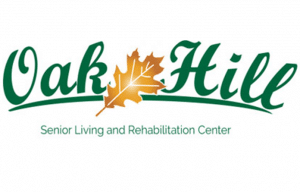Watershed moment for Columbia
Water and leaves were the main topics of discussion at the Oct. 4 meeting of the Columbia City Council.
The discussion of leaves was more informative in nature. As for the water, the city will have to wait at least a month for answers.
Columbia City Administrator Doug Brimm brought to the council’s attention that the city may have been undercharging the Prairie du Pont Public Water District for drinking water provided through the City of Columbia and sought feedback from the council before proposing a memorandum of understanding to the district.
As part of the Metro-East Municipal Joint Action Water Agency – a water cooperative between the cities of Columbia and Cahokia Heights – Prairie du Pont has purchased its drinking water for residents of North Dupo and East Carondelet from Columbia since 1999.
In January, Columbia changed the register on the master water metering equipment for Prairie du Pont water usage from analog to digital. The readings from this newer register showed a significant increase – around 52 percent – in water being supplied compared to the analog readings.
Prairie du Pont disputed the accuracy of the new readings, so Columbia installed a “pulse flow” water meter through a third party, and that reading supported the larger readings.
Prairie du Pont again disputed the findings, at which time the analog readers were re-installed and the water usage returned to its earlier, lower readings.
Columbia then employed engineers who found that the original meter had not been installed according to manufacturer specifications in 1999 when put in place by Prairie du Pont.
The engineers explained that digital readers are less susceptible to error in the case of improper installation. A separate pulse flow meter was then installed, which again supported the higher readings.
In order to settle the matter, Brimm is proposing that the city replace the master meter and have installation verified by Prairie du Pont.
Once installed, the plan is to make no changes to the meter or configuration for at least 30 days, excepting emergency situations, and read water usage at the end of that period.
If the memorandum of understanding is accepted by Prairie du Pont, the water district would reimburse Columbia for the cost of the new meter, installation, previous meter costs and reimbursement for underpayment from the time the digital readers were installed if the latest readings fall within 15 percent of the average water usage as measured by the digital register.
As a courtesy, Columbia is currently billing Prairie du Pont based on the previous three-month average water usage.
Brimm explained that the city had not been losing money as a result of the possible underpayments, but did acknowledge several aldermen’s concerns that the city may have lost money that could have been used for upkeep and future city water infrastructure expansion.
Prairie du Pont will approve the memorandum of understanding at its Oct. 13 meeting. It is anticipated the Columbia City Council will approve the document Oct. 18.
Another city service was questioned at the beginning of the meeting – although it was a new city-run resident service under scrutiny.
Don Henson has frequented city meetings since the council decided to purchase a leaf vacuum in early September.
Henson expressed concern over the past weeks that he feels the city may have rushed into the decision to provide its own leaf removal services rather than use third-party contract services.
Henson’s main concern was that the city would not be in compliance with Illinois Environmental Protection Agency guidelines for leaf disposal.
Columbia Mayor Bob Hill explained that the IEPA “has no problem with what (Columbia) is doing” regarding its leaf pickup program.
Brimm explained that a city-owned property is being used to properly dispose of the leaves and the city has two alternate locations if the maximum tonnage per acre of leaf matter at the current site becomes a concern.
Henson asked if he would be able to visit the leaf disposal site, but was told the property was not open to the public for a variety of reasons, including safety and liability issues.
The council also voted to officially close something that has been on the city ledgers for a quarter century: the Admiral Parkway Tax Increment Finance District.
Columbia Director of Community Development Scott Dunakey noted the move was “clerical” and would allow the city to officially include the end of the district in its end-of-year reporting.
The TIF district began in 1996 and taxes for the program ended at the close of 2020, although some funds from the account were finalized in 2021.
As reported in June, the 150-acre TIF boundary has been a boon to the Columbia area. In addition to bringing over $30 million of investments to the area, the equalized assessed value of the area grew $10 million and TIF revenues exceeded $12 million.
As a result, the development and resulting funds financed multiple improvement projects to infrastructure, roads and bridges in the area as well as part of the Columbia Middle School construction in 2005.
The TIF has been used as a “model” for successful implementation of such districts by the Illinois Municipal League.
The city is currently considering another TIF and business district plan along South Main Street.






